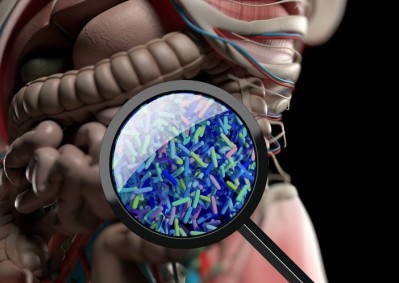Irish traveller changes in gut questions ‘healthy microbiome’ definition

An Ireland-based team finds that despite changes imposed on Irish Travellers’ lives, this population still retains a non-industrialised microbiome that may offer protection from chronic inflammatory disorders.
The results challenge the development and application of microbiome-based diagnostics, precision therapeutics and personalised medicine, which rely on reference norms for defined populations.
“I have always been intrigued by the Travellers and was curious why Crohn’s disease and ulcerative colitis are so rare among Travellers,” says professor Fergus Shanahan, study investigator at University College Cork (UCC). “I wondered whether Travellers might have a protective microbiome.”
Irish Travellers are genetically very similar to the non-nomadic settled Irish population as Irish Travellers deviated from the settled community 200 to 1,200 years ago.
Pressure to abandon their lifestyle and nomadism culminated with legislation in 2002 restricting land access for temporary living, effectively forcing Travellers into ‘halting sites’ and state-sponsored housing.
With life expectancy of Irish Travellers plateauing since 1987, the team hypothesised whether recent lifestyle changes are associated with differences in the microbiome and risk for chronic disease.
Irish Traveller participation
In total, 118 adult Irish Travellers with a mean age of 39 years participated in this study, of whom 53 (44.9%) were male and 65 (55.1%) were female.
While 87% of the Travellers were nomadic in childhood, individual Traveller families adopted a more settled lifestyle, particularly in housing, which varied from permanent encampment and halting sites to social housing.
Travellers retained high animal ownership (68.6% versus 42% estimated for the general population) and have a high sibling count (9.8 versus 1.38 for the general population).
Further investigations into the macronutrients and micronutrients of the Irish Travellers and previously published cohorts of young (sample size = 85) and elderly (sample size = 164) Irish controls found a diet typically high in fat (all forms) and protein.
The diet was also comparatively high in iodine, vitamin B12 and zinc. Of note, fibre intake in the Irish Traveller group was lower than fibre intake in all other groups, except the long-stay elderly group.
Further analysis of the Irish Travellers’ and the other Irish cohorts’ microbiome revealed a distinct separation of the Travellers along with participants from non-industrialised populations (indigenous, rural-dwelling hunter-gatherers from Fiji (FJI), Madagascar (MDG), Mongolia (MNG), Peru (PER) and Tanzania (TZA).
“We identified 59 species that were enriched in the non-industrialised populations versus the industrialised populations but were not detected in the comparisons within the Irish Traveller subgroups,” the study states.
“One of the most notable taxa in this list was Treponema (family Spirochaetaceae), which has previously been highlighted as a signature taxon of non-industrialised societies but was not detected in the Irish Travellers.
“Of the 141 species that were significantly depleted in the non-industrialised global populations, 40 species were also depleted in the non-industrialised-like subgroup of Irish Travellers,” the research team adds.
Increased chronic disorder risk
Professor Shanahan’s team also found compositional microbiome changes of Irish Travellers linked with changes associated with an increased risk of chronic disorders of industrialised (Western) societies.
These changes included differences in predicted microbiome production of the short-chain fatty acid (SCFA) butyrate and metabolism of carbohydrates, bile acids and trimethylamine (TMA), which were consistent across the Irish Traveller subgroups.
“Prevention of the chronic diseases of the West will require an understanding of how the gut microbiome changes with modernisation,” the study concludes.
“Transcontinental comparisons and studies of migrants offer a window on ancestral microbiota, but ethnic minorities in developed countries provide a more immediate perspective.
“The Irish Travellers represent such a model with the added advantage that it is possible to separate lifestyle factors from genetic and geographic influences,” the UCC team adds.
“Moreover, while societal lifestyle changes usually occur gradually over generations, they have been abrupt, recent and enforced for the Irish Travellers and reveal the wider public health concerns when ethnic minorities are pressured to change or to move en masse due to famine, war or natural disaster.”
Source: Nature Medicine
Published online ahead of print: DOI:10.1038/s41591-020-0963-8
“Microbiome and health implications for ethnic minorities after enforced lifestyle changes.”
Authors: David Keohane et al.















